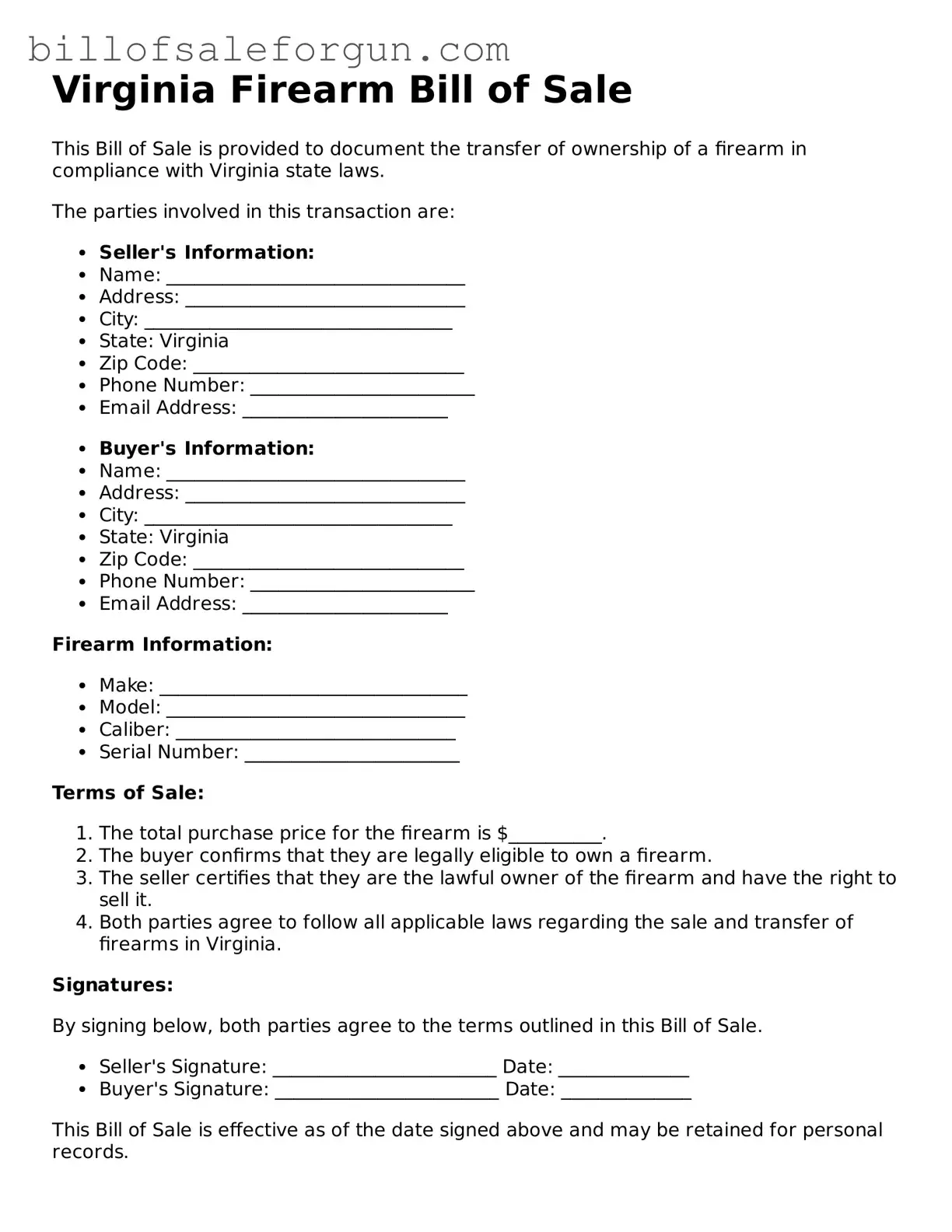Similar forms
The Virginia Firearm Bill of Sale form is similar to a vehicle bill of sale. Both documents serve as proof of transfer of ownership from one party to another. Just like a vehicle bill of sale, the firearm bill of sale typically includes details about the buyer and seller, a description of the item being sold, and the date of the transaction. This documentation helps protect both parties in case of future disputes regarding ownership or condition of the item sold.
For those looking to navigate the requirements for applying for a driver license in California, understanding the nuances of various forms can be crucial. The California Department of Motor Vehicles (DMV) DL 44 form is a critical document needed in this process. Just as important as the Virginia Firearm Bill of Sale, it serves as more than just a form; it represents a commitment to compliance with state regulations. For comprehensive information, you can visit TopTemplates.info to guide you through the specifics of filling out this essential form.
Another document that shares similarities with the Virginia Firearm Bill of Sale is a personal property bill of sale. This type of document is used for various personal items, such as furniture or electronics. It outlines the terms of the sale, including the item description, sale price, and the signatures of both the buyer and seller. Like the firearm bill of sale, it serves to establish a legal record of the transaction and can be important for tax purposes or in case of disputes.
The firearm bill of sale also resembles a lease agreement. While a lease agreement typically pertains to rental arrangements, both documents clearly outline the terms of a transaction. They detail the responsibilities of each party, such as payment terms and conditions for use. In the case of a firearm, the bill of sale indicates the transfer of ownership, while a lease agreement specifies the duration of use and obligations of the lessee.
In addition, the Virginia Firearm Bill of Sale is akin to a gift receipt. When a firearm is given as a gift, a bill of sale can serve as a record of the transaction, even if no money changes hands. This documentation can clarify the giver and receiver's intentions, providing evidence that the firearm was transferred legally. Both documents help ensure that ownership is clear and can assist in tracking the item in the future.
Another related document is a warranty deed, commonly used in real estate transactions. Although the contexts differ, both documents formalize the transfer of ownership. A warranty deed guarantees that the seller has the right to sell the property and that it is free of liens. Similarly, the firearm bill of sale confirms that the seller is legally allowed to sell the firearm and that it is not stolen or encumbered by any legal issues.
Lastly, the Virginia Firearm Bill of Sale is similar to a consignment agreement. In a consignment arrangement, an owner allows another party to sell their item on their behalf. This agreement typically outlines the terms of sale, including how proceeds will be shared. Like the firearm bill of sale, it establishes a legal framework for the transaction and clarifies the responsibilities of each party involved.
